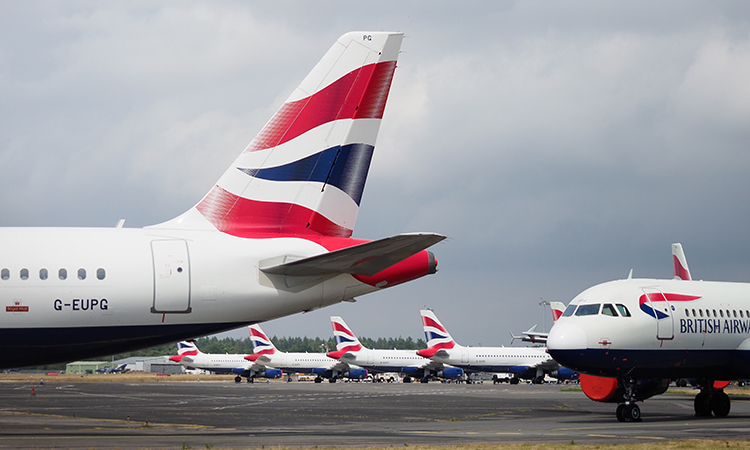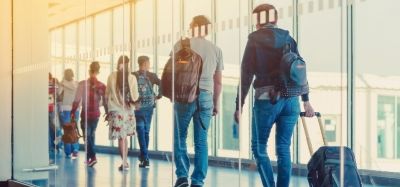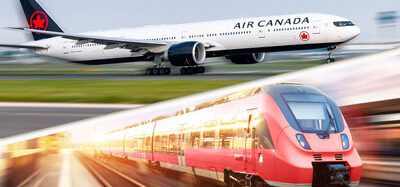Greater government support key to UK air travel recovery
- Like
- Digg
- Del
- Tumblr
- VKontakte
- Buffer
- Love This
- Odnoklassniki
- Meneame
- Blogger
- Amazon
- Yahoo Mail
- Gmail
- AOL
- Newsvine
- HackerNews
- Evernote
- MySpace
- Mail.ru
- Viadeo
- Line
- Comments
- Yummly
- SMS
- Viber
- Telegram
- Subscribe
- Skype
- Facebook Messenger
- Kakao
- LiveJournal
- Yammer
- Edgar
- Fintel
- Mix
- Instapaper
- Copy Link
Posted: 1 February 2021 | Karen Dee | No comments yet
Karen Dee, Chief Executive of the Airport Operators Association (AOA), assesses the state of the UK airport industry, which is still grappling with the ongoing repercussions of COVID-19, and calls on the UK government to do more to ensure its survival.


Terminals empty, shops shut and entire fleets grounded, parked in long-term storage. This is the state of the aviation industry in the wake of the COVID-19 pandemic. Since early 2020, the rapid spread of COVID-19 led to unprecedented restrictions by the UK government on travel and aviation businesses. Even in the summer, when some travel was possible, passenger numbers were a fraction of travellers in recent years due to the introduction in the UK of quarantine for arriving passengers.
With few passengers, little to no revenue has been a reality for airports for many months, with more to come as lockdown is renewed for understandable public health reasons. At least 18,000 airport and airline staff have been made redundant to date, plus many more on long-term furlough facing uncertain futures. With highly varied progress around the world on vaccinations, testing and border controls, there is, as yet, no clear route out of the crisis.
2021 is expected to be our second-worst year in history, second only to the torrid experience of 2020. That leaves our industry with a major question – just how bad will 2021 be?
Most airports are currently keeping their infrastructure open in order to support vital and critical services, emergency services and military and HM Coastguard flights, as well as to support the continued operations of offshore oil, gas and wind farms. And, perhaps most importantly, to enable distributions of vital vaccines and precious personal protective equipment (PPE). Airports are doing so while running on empty – there is only so long that they can run on fumes before more have to close temporarily or restrict operations.
The UK government has provided a little over £2 billion to the UK aviation sector through loans to airlines and aerospace manufactures. This compares with the £183 billion of COVID-19-related financial support to the UK economy as a whole and, although the Job Retention Scheme is rightly welcomed, the support provided has been significantly less than in many other European countries. This is particularly notable when taking into account the relative size of the UK aviation sector and its pivotal role in connecting our island nation to the world.
This drop in the ocean of devastating losses needs to be addressed, with the UK government needing to step up and increase its support for airports’ operational costs by, for example, urgently providing relief from regulatory, policing, air traffic and business rates costs in the current and the coming tax year.
An Aviation Recovery Plan must, therefore, be announced as soon as possible. Government support has to be tailored to the sector, including full business rates relief for airports in the 2021/22 period, a suspension of APD once a sustained recovery is underway and reversing the decision to abolish the airside VAT exemption.
The UK’s testing system is in a much better shape in early 2021 than in 2020, but we are yet again urging the UK and devolved governments to work with the industry and public health authorities to take further steps on testing to safely remove quarantine as soon as is possible. Until then, aviation cannot recover and reconnect Britain to the world: The infrastructure behind a Global Britain.
Air travel is essential to global trade, and that’s why we must find ways to continue travel in the safest possible way. Coordination with other relevant organisations, such as the International Civil Aviation Organization (ICAO) and the World Health Organization (WHO), is a must.
The future of flying may well be a little different post-pandemic, but one thing is clear. Passengers must feel confident in flying, encouraged by progress on vaccinations and by a clear and consistent testing framework only for as long as needed from a public health perspective. Communications from government to bring that confidence back will be vital later in 2021 as we expect restrictions to begin being eased and bookings to be made.
Airports are critical national infrastructure upon which the future of the UK economy depends. Industry needs action – not words – from the government to ensure that we are in the position to help to deliver the economic recovery we will need so desperately once the pandemic is brought under control.
Karen Dee joined the Airport Operators Association (AOA) as Chief Executive in 2017. Dee has more than 20 years’ experience in policy development, communications and representation activities within the transport sector. Her career has incorporated roles in government, consultancy and trade associations including: The Department for Transport (DfT), Market Access, the Road Haulage Association, CBI, Policy Solutions and, more recently, the Freight Transport Association, where she worked as Director of Policy for six years.
Related topics
Aeronautical revenue, Airport crisis management, COVID-19, Economy, Passenger volumes, Regulation and Legislation, Workforce
Related organisations
Airport Operators Association (AOA), International Civil Aviation Organization (ICAO), UK Government, World Health Organization (WHO)


















